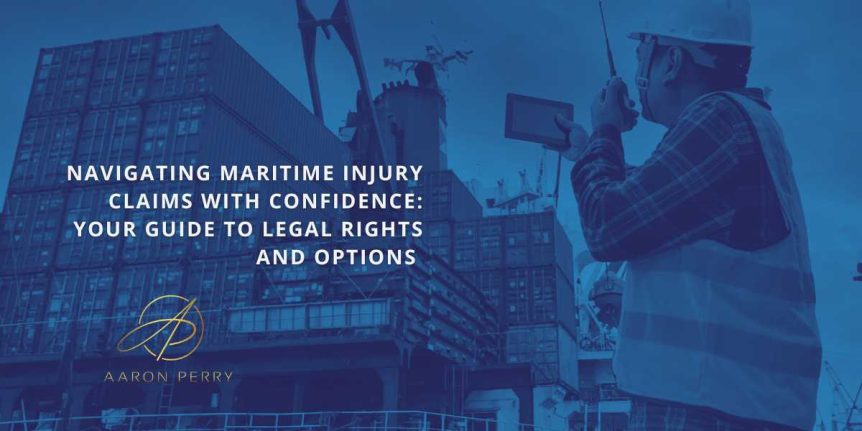
Navigating Maritime Injury Claims with Confidence: Your Guide to Legal Rights and Options
On the Texas Gulf Coast, maritime work can be both rewarding and perilous. Situated near the bustling Port of Houston and Galveston Bay, maritime workers face unique challenges and risks. Navigating the legal process after a maritime accident can be daunting, but understanding your rights under maritime law can help. This guide highlights key aspects of maritime injury law, including the Jones Act and the Longshore and Harbor Workers’ Compensation Act (LHWCA), to provide clarity on your legal options.
Understanding Maritime Law: Your Rights as a Worker
Maritime law is a specialized field designed to protect workers on the water. Below are crucial aspects of this legal domain that can aid you in seeking compensation and care after an injury.
The Jones Act: Protection for Seamen
The Jones Act serves as the primary legal tool for injured seamen. This legislation allows you to sue your employer for negligence if their carelessness contributed to your injury. To qualify as a seaman under the Jones Act, you must have a substantial connection to a vessel that is “in navigation,” meaning it is operational. This includes workers on oil rigs, tugboats, barges, crew and supply boats, and fishing trawlers.
Beyond a negligence claim, seamen are entitled to “maintenance and cure” benefits—a no-fault benefit covering living expenses and necessary medical costs until reaching maximum medical improvement.
The LHWCA: Coverage for Other Maritime Workers
If you work on a pier, dock, or other land-based area near navigable water, you are likely covered by the Longshore and Harbor Workers’ Compensation Act (LHWCA). This no-fault federal workers’ compensation system provides medical benefits, disability payments, and vocational rehabilitation for longshoremen, shipbuilders, repairmen, and dock workers, without requiring proof of employer fault.
The Doctrine of Unseaworthiness
In addition to a Jones Act claim, injured seamen may have a claim under the doctrine of unseaworthiness. Vessel owners have an absolute duty to provide a safe, or “seaworthy,” vessel. If an unsafe condition—such as faulty equipment, an improperly maintained deck, or an incompetent crew—caused your injury, you may have a case.
What to Do After an Injury
- Get medical attention. Prioritize your health above all else.
- Report the accident. Inform your employer or supervisor immediately and clearly communicate the severity of your injury.
- Document everything. Maintain a detailed journal of your symptoms and save all medical bills and related communications.
- Decline recorded statements. Politely refuse any requests from your employer or their insurance company for a recorded statement until you have consulted with a lawyer.
Maritime law is complex, and the specific details of your case matter. Consulting with an attorney soon after your injury is the best way to protect your rights, especially given the firm deadlines for filing a claim. You deserve protection and the compensation and care necessary for recovery.
Frequently Asked Questions
What types of injuries are common in maritime work?
Common injuries include slips and falls, equipment malfunctions, exposure to hazardous substances, and repetitive strain injuries.
How long do I have to file a claim under the Jones Act?
Typically, you must file your claim within three years from the date of the injury.
Can I receive benefits under both the Jones Act and the LHWCA?
No, you must file under one system depending on your role and the nature of your work.
Why Choose Aaron Perry Law Firm?
At Aaron Perry Law Firm, we understand the intricacies of maritime law and are committed to fighting for your rights. Located in the Houston area, we have extensive experience handling cases around the Port of Houston and Galveston Bay. Our dedicated team provides personalized attention and strives to secure the best possible outcome for your case. Trust us to navigate the complexities of maritime injury claims so you can focus on your recovery.
